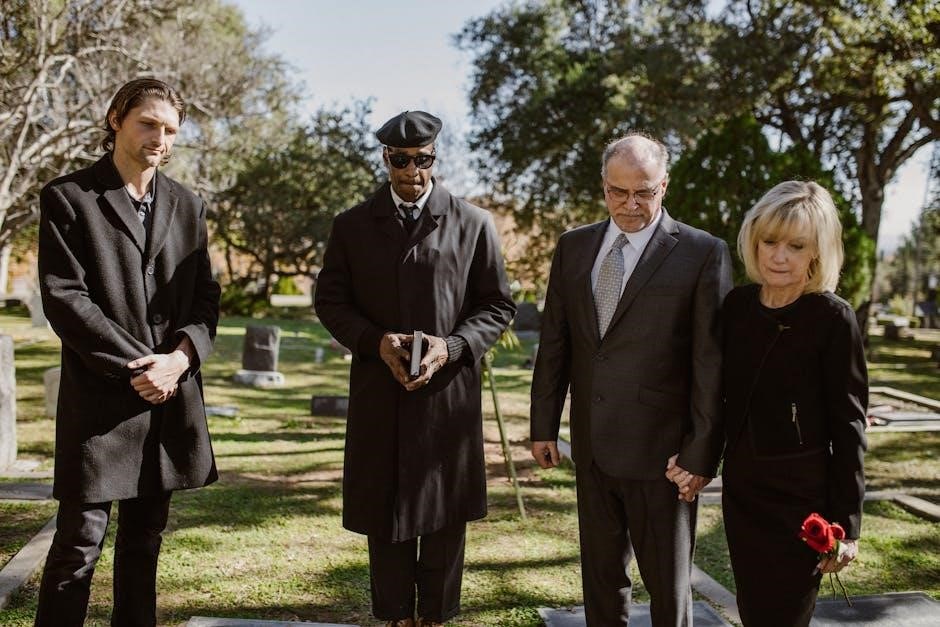Chaplain prayers serve as a vital source of spiritual guidance, offering comfort, hope, and redemption across diverse settings. These prayers, often found in structured chaplain prayer books, are designed to address the unique needs of individuals in military, healthcare, and correctional environments, fostering a connection with the divine and providing solace in challenging times.
Overview of Chaplaincy and Prayer
Chaplaincy involves spiritual leaders providing emotional and religious support across various settings, including military, healthcare, and correctional facilities. Prayer is a cornerstone of chaplaincy, serving as a universal language to connect individuals with the divine. Chaplains create structured prayer books that include invocations, benedictions, and specialized prayers for diverse occasions. These resources are developed collaboratively, often incorporating contributions from chaplains with varied experiences. The role of prayer in chaplaincy extends beyond religious rituals, offering comfort, hope, and redemption to those in need. It bridges the gap between faith and daily life, fostering resilience and spiritual well-being in challenging environments.
Importance of Chaplain Prayers in Spiritual Guidance
Chaplain prayers hold profound significance in providing spiritual guidance, especially in challenging environments. These prayers, often outlined in structured chaplain prayer books, offer solace, hope, and redemption. They serve as a bridge between faith and daily life, helping individuals navigate emotional and spiritual struggles. Chaplains use these prayers to foster resilience, comfort, and inner peace. By addressing diverse needs, chaplain prayers create a sense of community and connection, making them invaluable in spiritual care across military, healthcare, and correctional settings. Their role extends beyond rituals, offering meaningful support that enriches lives and strengthens faith.
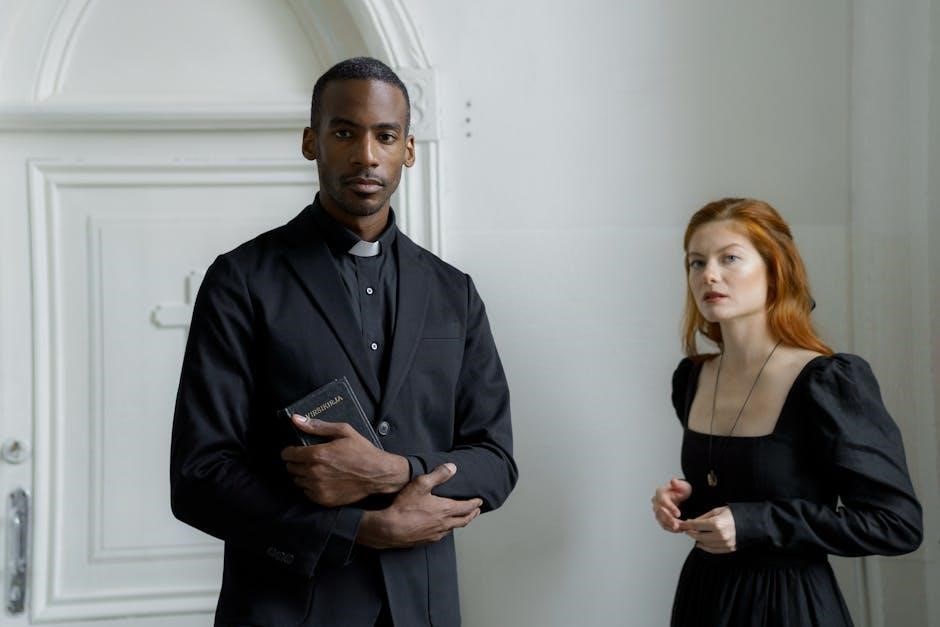
Types of Chaplains and Their Prayer Roles
Chaplains serve in various roles, including military, hospital, and prison settings, offering prayers that bring comfort, hope, and redemption. Each chaplain tailors prayers to meet specific needs.
Military Chaplains and Their Prayer Responsibilities
Military chaplains play a crucial role in providing spiritual support to service members and their families. Their prayer responsibilities include leading ceremonies, offering comfort during deployments, and ensuring religious freedom. Chaplains conduct invocations, benedictions, and specialized prayers for troops in combat zones. They also create prayer resources, such as the Air Force Chaplain Corps Book of Prayers, to inspire and guide military personnel. These prayers often focus on protection, strength, and unity, addressing the unique challenges faced by those in service. Military chaplains ensure that spiritual needs are met, fostering resilience and hope amidst adversity.
Hospital and Hospice Chaplains: Prayers for Comfort
Hospital and hospice chaplains provide spiritual care to patients, families, and staff, offering prayers that bring solace and hope. Their prayers focus on healing, peace, and comfort, addressing emotional and existential concerns. Chaplains adapt prayers for diverse faith backgrounds, ensuring inclusivity. They also lead rituals like blessings for the sick and end-of-life prayers. These spiritual leaders use structured prayer resources to create meaningful moments, fostering a sense of calm and connection during challenging times. Their role is essential in holistic patient care, nurturing the soul as well as the body.
Prison Chaplains: Prayers for Redemption and Hope
Prison chaplains play a crucial role in offering spiritual support to inmates and staff through prayers focused on redemption and hope. Their prayers often address themes of forgiveness, personal growth, and resilience, providing solace to those navigating challenging circumstances. Chaplains adapt prayers to meet the unique needs of the incarcerated, fostering reflection and renewal. They also lead prayer services, Bible studies, and counseling sessions, helping individuals reconcile their past and find purpose. These spiritual leaders contribute significantly to the emotional and moral well-being of the prison community, offering a pathway to healing and reintegration through faith and prayer.
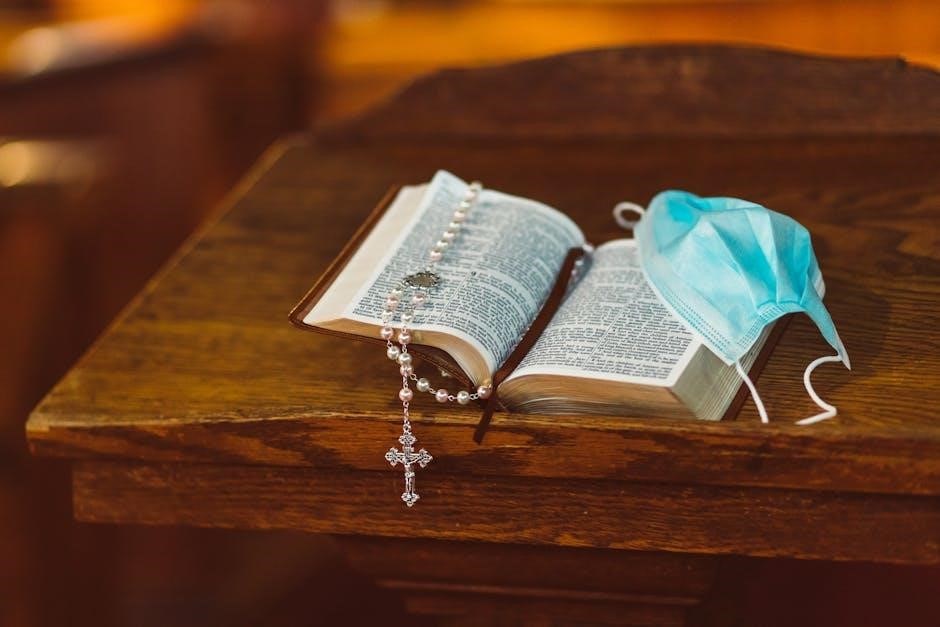
Key Elements of Chaplain Prayer Books
Chaplain prayer books contain structured prayers, devotional reflections, and inspiring poems, crafted collaboratively to meet diverse spiritual needs and provide comfort in various settings.
Structure and Content of Chaplain Prayer Resources
Chaplain prayer resources are meticulously organized to address diverse spiritual needs, featuring structured prayers, devotional reflections, and inspiring poems. These resources often include invocations, benedictions, and specialized prayers for various occasions. The Air Force Chaplain Corps Book of Prayers exemplifies this, offering a comprehensive collection tailored for military contexts. Collaboration among chaplains ensures the content resonates across different settings, from military ceremonies to healthcare environments. The resources are designed to provide comfort, hope, and guidance, making them invaluable for both personal devotion and community gatherings. Their versatility and thoughtfully curated content make chaplain prayer books essential tools for spiritual support.
Examples of Chaplain Prayer Books (e.g., Air Force Chaplain Corps Book of Prayers)
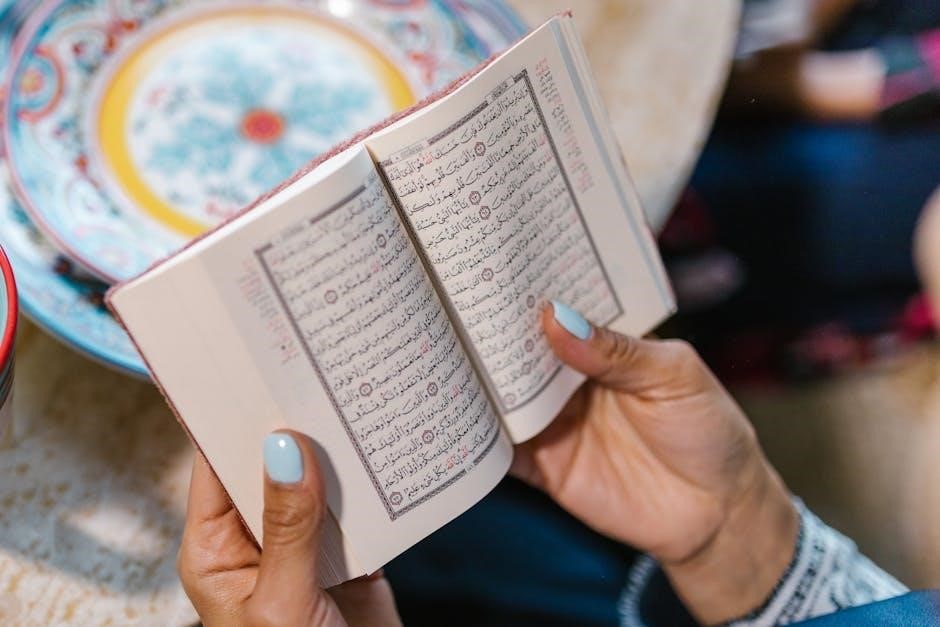
The Air Force Chaplain Corps Book of Prayers stands as a prominent example, offering a diverse collection of prayers for military personnel and ceremonies. Similarly, the American Legion Auxiliary Chaplains Prayer Book provides structured invocations and benedictions for community gatherings. Other notable resources include the Grand Chaplain’s prayers from the Wisconsin Masonic Grand Lodge, tailored for fraternal events. These books often feature contributions from various chaplains, ensuring a wide range of spiritual perspectives. They serve as invaluable tools for chaplains, providing ready-to-use prayers for healing, comfort, and guidance in both personal and communal settings.
Specialized Prayers for Different Occasions
Chaplain prayers are tailored to meet the unique needs of various situations, offering solace and guidance. Military ceremonies often include invocations for protection and strength, while healthcare settings feature prayers for healing and comfort. Community events may incorporate benedictions to express gratitude and seek divine favor. Chaplains also craft prayers for bereavement, weddings, and other life milestones. These specialized prayers are designed to resonate deeply with individuals facing specific challenges or celebrating significant moments, ensuring relevance and emotional connection in diverse contexts.
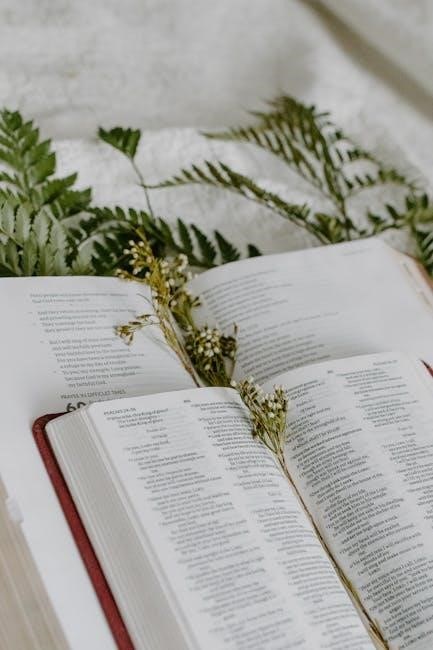
Prayers for Specific Occasions
Chaplain prayers are crafted for unique events, providing spiritual support during ceremonies, rituals, and personal milestones. They offer comfort, guidance, and hope, addressing specific emotional and situational needs.
Invocations and Benedictions in Chaplain Prayers
Invocations and benedictions are integral to chaplain prayers, serving as opening and closing rituals. These prayers seek divine presence and blessings, fostering unity and gratitude. Benedictions offer final blessings, imparting peace and guidance, while invocations set a sacred tone for gatherings, ensuring spiritual connection and purpose. They are often tailored to specific events, such as military ceremonies, hospital services, or community meetings, providing comfort and inspiration to all participants;
Prayers for Military Personnel and Their Families
Prayers for military personnel and their families are a cornerstone of chaplaincy, offering strength and solace during deployments and reunions. These prayers often include blessings for safety, protection, and resilience. Chaplains craft them to address the unique challenges faced by service members, such as separation from loved ones and the uncertainties of duty. Families are also supported through prayers that seek comfort, unity, and hope. These spiritual resources are frequently included in chaplain prayer books, providing a sense of community and divine connection for those navigating the sacrifices of military life.
Prayers for Healing and Comfort in Healthcare Settings
Chaplains in healthcare settings provide prayers for healing and comfort, addressing the physical, emotional, and spiritual needs of patients and families. These prayers often seek divine intervention for recovery, strength, and peace. Structured resources, such as chaplain prayer books, include specific prayers for illnesses, surgeries, and end-of-life care. Chaplains adapt their prayers to meet diverse faith traditions, ensuring inclusivity and sensitivity. Prayers for healthcare staff are also common, offering solace and renewal. These spiritual practices foster a sense of hope and resilience, emphasizing God’s presence in times of vulnerability and uncertainty, while promoting emotional and spiritual well-being.
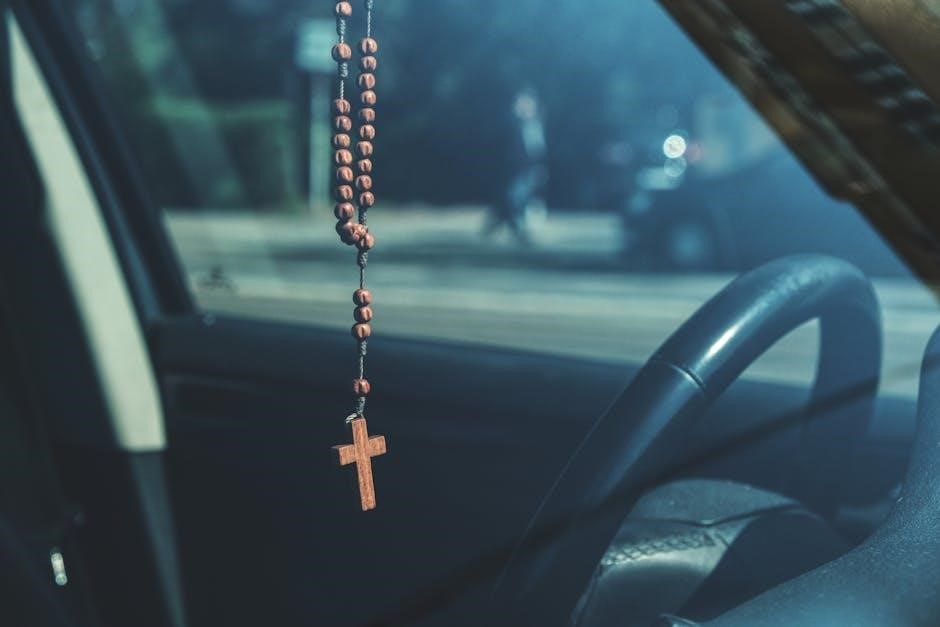
The Role of Chaplains in Creating Prayer Resources
Chaplains play a crucial role in developing prayer resources, collaborating with diverse faith leaders to create inclusive and meaningful prayers. Their work ensures spiritual needs are met.
Collaborative Efforts in Developing Chaplain Prayer Books
Chaplains often collaborate with faith leaders and communities to develop prayer books that reflect diverse spiritual needs. These resources are created through shared contributions, ensuring inclusivity and relevance. For instance, military chaplains work together to craft prayers that resonate with service members and their families. Similarly, hospital chaplains contribute to books that offer comfort and healing. Such collaborative efforts ensure that chaplain prayer books address a wide range of situations, from ceremonies to personal devotion. This teamwork fosters unity and provides meaningful spiritual support across different contexts and faith traditions, making these books invaluable tools for chaplains and those they serve.
Personal Reflections and Inspirations in Chaplain Prayers
Chaplain prayers often draw from personal reflections and spiritual inspirations, creating meaningful connections with those seeking guidance. Chaplains may include devotional thoughts, poems, or anecdotes that resonate with their experiences. These reflections are tailored to address specific needs, such as prayers for soldiers, healing, or redemption. For instance, a military chaplain might share a prayer inspired by their time in service, while a hospital chaplain could reflect on moments of compassion. These personal touches make chaplain prayers relatable and impactful, offering solace and hope in diverse situations. Such inspirations ensure prayers remain authentic and relevant to those they serve.
Adapting Prayers for Diverse Audiences
Chaplains adapt prayers to meet the unique needs of diverse audiences, ensuring relevance and inclusivity. Whether in military, healthcare, or correctional settings, prayers are tailored to reflect the specific challenges and hopes of those served. For instance, military chaplains may focus on themes of protection and resilience, while hospital chaplains emphasize healing and comfort. Prayers are also adjusted to accommodate different cultural and religious backgrounds, ensuring they resonate with individuals from varied faith traditions. This adaptability ensures chaplain prayers remain meaningful and accessible, fostering a sense of connection and support across diverse groups.
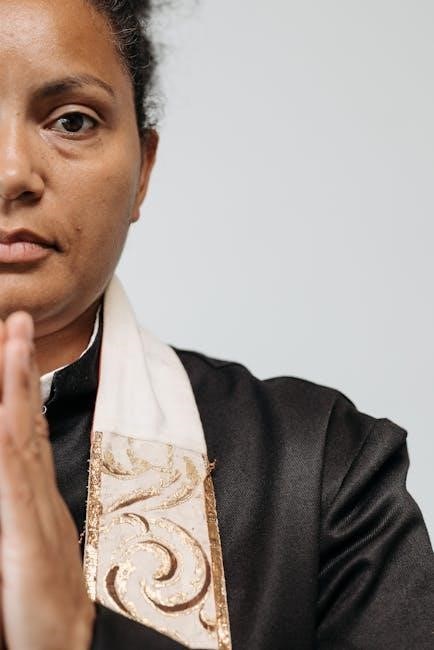
Practical Uses of Chaplain Prayers
Chaplain prayers are widely used in ceremonies, rituals, and personal devotion, offering spiritual support and comfort in diverse settings, including military, healthcare, and community gatherings.
Chaplain Prayers in Ceremonies and Rituals
Chaplain prayers play a central role in ceremonies and rituals, providing spiritual grounding and unity. They are often recited during invocations, benedictions, and special occasions, such as military ceremonies or memorial services. These prayers are structured to address specific themes, offering comfort, gratitude, or guidance. For example, a chaplain might lead a prayer for peace during a commemorative event or a blessing for safety in a military context. The use of chaplain prayers in these settings fosters a sense of community and shared purpose, while also honoring traditions and uplifting participants. Their presence is essential in creating meaningful and reverent experiences.
Using Chaplain Prayers for Personal Devotion
Chaplain prayers are a valuable resource for personal devotion, offering individuals a way to connect with their faith and find spiritual strength. These prayers, often found in chaplain prayer books, provide guidance for daily reflection and meditation. They address themes such as gratitude, forgiveness, and hope, making them adaptable to personal needs. Many chaplain prayers are designed to inspire introspection and renewal, helping individuals navigate life’s challenges. By incorporating these prayers into personal devotion, individuals can deepen their spiritual practice and foster a sense of peace and clarity in their lives. Their accessibility makes them a powerful tool for personal growth.
Sharing Chaplain Prayers in Community Settings
Chaplain prayers are a powerful way to foster unity and provide comfort in community settings. Whether in hospitals, military bases, or places of worship, these prayers create a shared spiritual experience. Chaplains often lead group prayers, drawing from structured resources like the Air Force Chaplain Corps Book of Prayers. Such collective worship strengthens bonds and offers emotional support. For example, military chaplains use prayers to uplift service members and their families, while hospital chaplains provide comfort to patients and staff. Sharing these prayers in community settings promotes healing, hope, and a sense of togetherness, making them an essential part of communal spiritual care.
